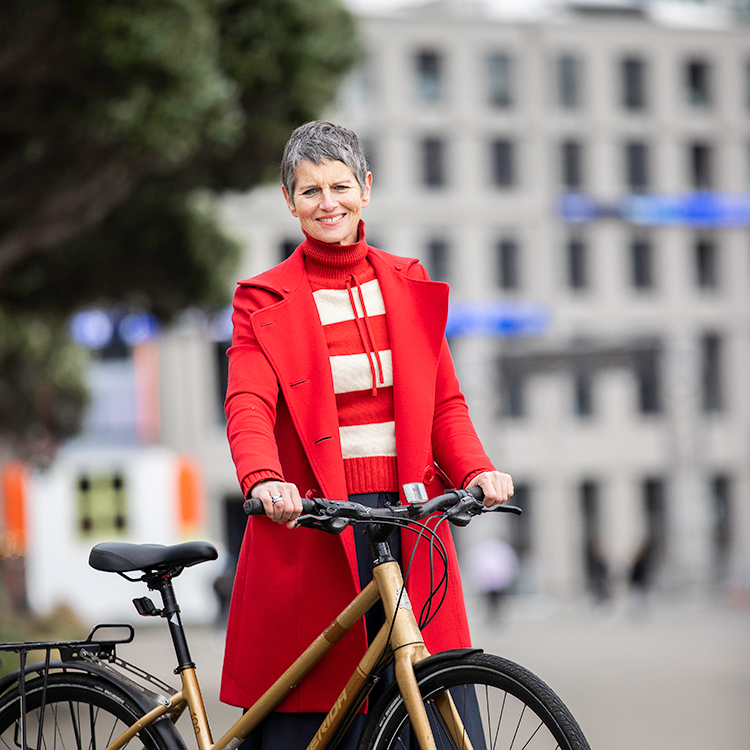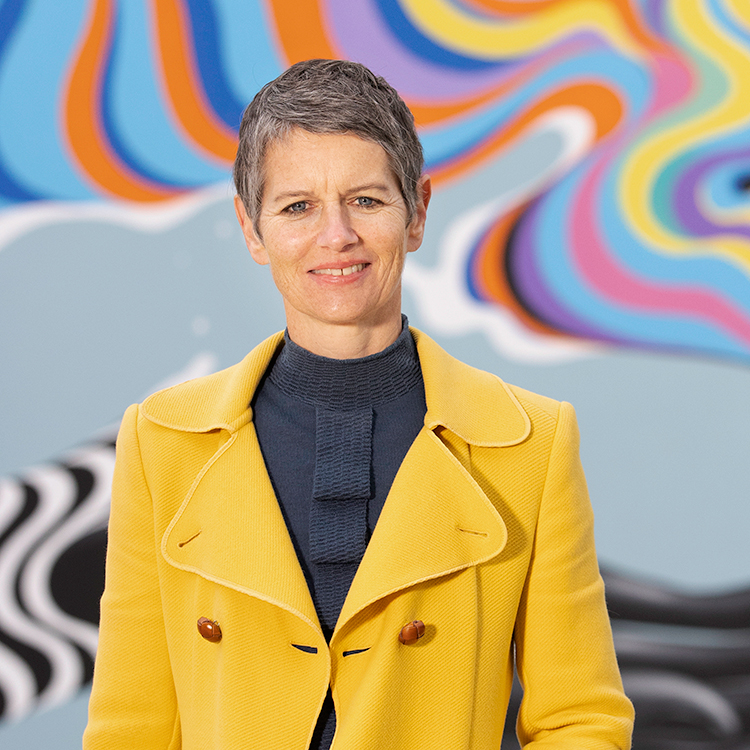
A Fiordland cruise: silence and serenity
A six-night cruise takes in the scenic highlights and historic significance of coastal Fiordland.
Sarah Connor is a Wellington-based speaker and advocate who champions the need to raise awareness about menopause within communities and workplaces. In the lead up to World Menopause Day on October 18, we find out why this is an important topic – and not just for women.
What is menopause?
Menopause is a normal, inevitable and temporary stage of life that nearly half the population is going to go through, including trans men and some people who identify as non-binary.
In basic terms, menopause is a series of hormonal changes which are not that different from puberty, though the reverse of puberty. The average age for reaching menopause in New Zealand is 52.
But the fact is ‘menopause’ is just one single day. Although the term is used broadly, it is simply the day when someone can say that they haven’t had a period for 12 months in a row.
When people talk about menopause, they’re generally talking about the years leading up to it, known as perimenopause. This is when the hormones oestrogen, progesterone and testosterone start fluctuating and causing noticeable changes, which can kick in any time from the late 30s through to late 40s. It’s a period that could last from two to ten years.

What are some of the symptoms of perimenopause?
There are about 30-40 symptoms that people can experience. It can be hot flushes, night sweats, mood changes, anxiety, depression, irritability, memory loss; it can be suddenly feeling enraged for what seems like no reason.
Another common sign is periods changing – getting heavier, lighter, shorter or longer.
There is also a raft of other unusual symptoms that could include restless legs, insomnia, aching joints and burning mouth syndrome where you feel like your mouth is on fire. One of the things that I had was called formication. It’s like the sensation of ants crawling under your skin
About 70% of women experience significant symptoms which impact their quality of life.
How did you start your journey of being a menopause campaigner?
I got into this by accident. Five years ago, I was 46, fit, happy and healthy when I started to experience changes that were out of character for me. One day I was driving home, and I suddenly felt like my head was on fire. It gave me a real fright. At that stage I didn’t even really know what a hot flush was, I had imagined it was more of a whole body thing. My GP mentioned perimenopause, but I thought that was years away, so put it out of my mind. Over the next few months all these other changes started to kick in. I couldn’t sleep at night; I was really anxious for no reason. I felt tearful and flat. For someone who had always been cheerful and energetic it was so confusing and worrying.
Eventually I discovered the Wellington Menopause Clinic. That changed everything. They assured me that everything was entirely normal, that this is what perimenopause can look like and that there were lots of things that I could do to help manage it.
I realised that there was a whole generation of women who had a similar lack of understanding. Seeing the impact that menopause can have, not just on an individual, but on their relationships, their ability to go to work, on all facets of their lives, made me realise that I had to do something.
I hosted a dinner called Menopause over Martinis to bring together my friends of a similar age, and those older, wise women who’d helped me. I wanted to share information, because not everyone has those women in their lives to pass that information on.
People started asking if they could come to the next dinner. I wasn’t planning on hosting more, but I did three more dinners, and then in 2020 I created the website menopauseovermartinis.org which had information, conversation starters and all the resources that I wished I’d had when I was going through it. My mission was to make it all available in one place.
From that I started doing lunch and learn sessions through a friend who works in Government service and began having these discussions more broadly. It all just evolved from there!

Why is it important to raise awareness about menopause?
Women’s reproductive systems have not been widely talked about. My goal is to lift the shame and the embarrassment and making it a normal conversation.
We’re quite used to talking about puberty and periods now. Menopause is just an extension of that.
I think one of the best things we can do is get used to saying the words ‘menopause’ and ‘perimenopause’ out loud. Until we get comfortable saying the words we won’t be able to find the information we need.
I’ve had a lot of men tell me that they really do want to be informed and supportive, but they don’t really know how, especially in workplaces. I’ve been really open to including men and young people in the conversation – it shouldn’t just be reserved for people who are in the middle of it.
What are some of the common misconceptions about menopause?
That it’s just about periods stopping and hot flushes. People have often viewed menopause as ‘the end’– the end of their reproductivity, the end of a valuable stage in their life. A lot of negative stereotypes in the Western world that are quite unhelpful and disempowering.
In other cultures, the perception of menopause is quite different. In te reo Māori the word for menopause is ruahinetanga, ruahine meaning ‘a woman of importance, a wise woman, a woman getting older.’ None of those things are negative. There’s no idea of a deficit, it comes with knowledge and mana.
What do you most want people to know about menopause?
It’s a normal stage of life. You’re not losing your mind. You’re not the only one. We’re meant to go through these stages and menopause is one of them. Hormones have the power to change our minds and our bodies. It’s ok to talk about it and its ok to ask for help. And help is available.
This story is from the Spring 2024 issue of AA Directions Magazine.